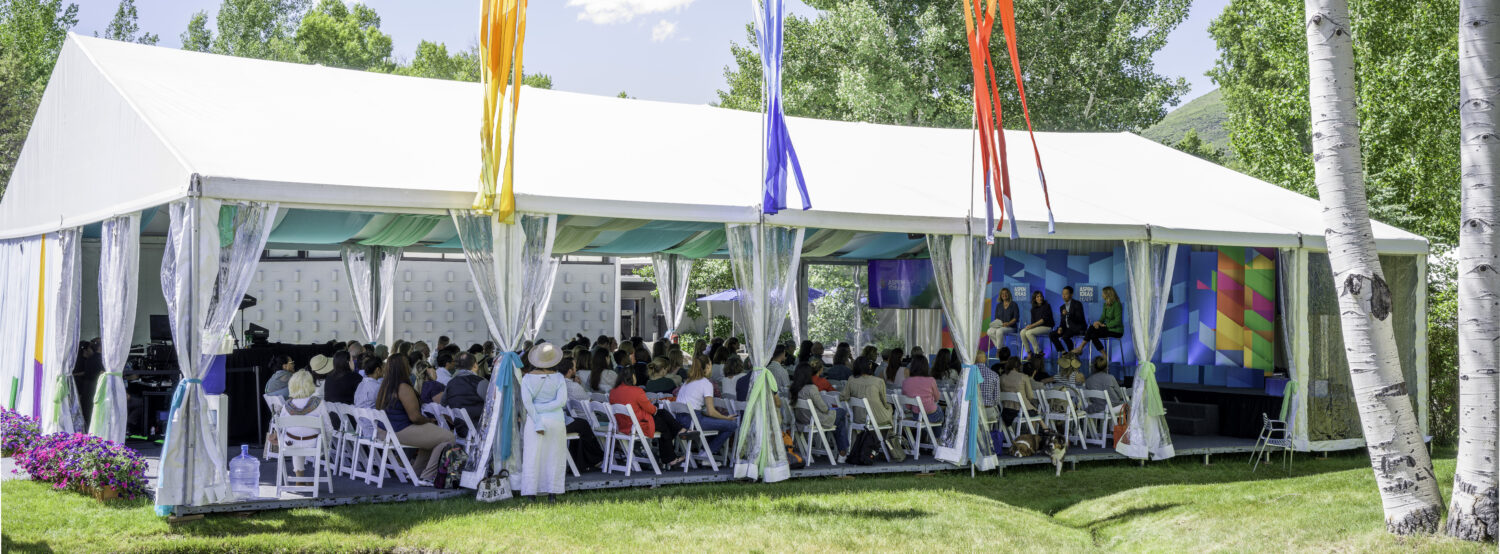The Project Play Summit is the nation’s premier gathering of leaders building healthy children and communities through sports. On March 24-25, Project Play heads to the Bay Area — the first time the event has been hosted on the West Coast and a world-renowned center for innovation, just the kind of setting leaders from across sectors need to unlock the ideas and innovations to better serve youth. The theme this year is The Path to 63X30, or how we can help the nation get 63% of youth playing sports by the year 2030. Presented by ESPN and hosted by NBA Countdown’s Malika Andrews, featured speakers include author Michael Lewis, the CEOs of the National Recreation and Park Association, the National Federation of State High School Associations, Little League International and more, with a special pre-recorded appearance by Stephen and Ayesha Curry.
Project Play Summit 2025
Note: This is a past event, additional resources may be available below.
Mar 24 – 25 2025
Bay Area, California
Date
Mar 24 – 25 2025
12:00am PDT
12:00am PDT
Location
Bay Area, California
University of California, Berkeley
University of California, Berkeley
Contact
Hosts
Related Events
Aspen Ideas Festival 2025
Bold ideas. Bright minds. One transformative week.
Rising Civic AI Leaders
A program providing recent tech-to-government civic AI leaders with the knowledge, tools, and support to navigate government processes.
Project Play Summit 2024
The 11th annual Project Play Summit took the Project Play network to Baltimore, Maryland – the site of the Sports & Society Program’s first State of Play report released in 2017. We reflected on the work accomplished, the learnings there and across the nation since then by innovators, and charted next steps in building healthy communities through sports.
Future of Sports: Luka Dončić on Future of Basketball
On the eve of NBA All-Star Weekend 2025, the Sports & Society Program spoke with NBA star Luka Dončić about his experience growing up in Europe, and explored recommendations in a new report by his foundation with a panel of experts as part of its Future of Sports conversation series.
Policy Impact for Emerging Climate Leaders: Training Program
To support emerging climate leaders in their efforts to shape climate policy, the Aspen Policy Academy offers this bootcamp.
Future of Sports: Olympic Reform in the Public Interest
Created 45 years ago during the height of the Cold War, the Sports Act needs to be updated. It’s hard to conclude otherwise after reading the final report of the Commission on the U.S. Olympics and Paralympics. From unchecked athlete abuse to declining youth sports participation rates, our sport system has been shaped by fundamental flaws in the design of the Sports Act. How should the Sport Act be reshaped so the Olympic & Paralympic movements serve the public interest?
Future of Sports: College Sports Reform in the Public Interest
The national conversation around NCAA reform has centered on two parties: revenue-producing athletes and the universities they play for. But big-time college sport is not an island. It sits on top of and influences the shape of a much larger ecosystem, youth and school sports, which has been transformed over the past generation by the chase for scholarships, preferential admission slots for recruited athletes, and now NIL opportunities. So how to get the new model right? How to reform college sports in the public interest?
Future of Sports Journalism
Sports both reflect and shape our society. Journalism unpacks those relationships, along the way making the games that we play more interesting and relevant. The New York Times, HBO Real Sports, and Los Angeles Times helped set the standard. Now, each outlet is changing how it covers sports – and Real Sports ended after 29 award-winning years.
What happened? And what does the future hold for enterprise and investigative journalism in sports? Could the public get less, or more, coverage of important topics as the media landscape evolves? What are the most promising business models to support this work? And what do we lose if longform sports journalism gets deprioritized in a streaming world?
Future of College Sports: Special Admissions
Race-based preferences during college admissions are gone, jettisoned by the Supreme Court. Now universities are under pressure to drop favorable treatment for donors and children of alumni. But what about recruited athletes, whose admission advantage far outstrips any of the above categories of student? At Harvard, for instance, the chances of getting in move from less than 1% to 86% if coveted by a coach.
Can special admissions for recruited athletes be preserved? Should they? Our panels explore the societal implications of preferred treatment of athletes, from the contributions they make to campus life to the downstream reshaping of the youth sports industry, and considers: What treatment makes sense now?









